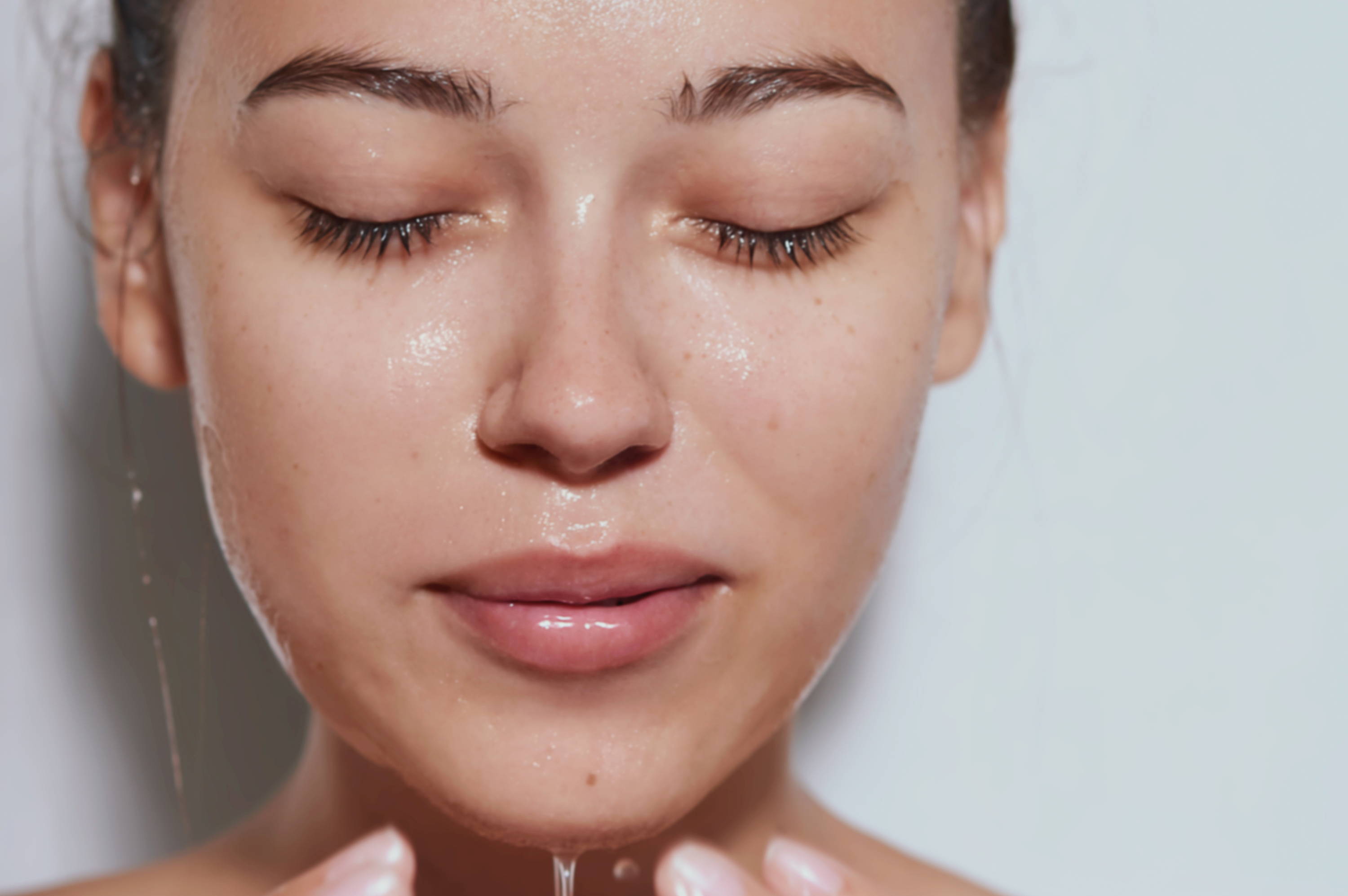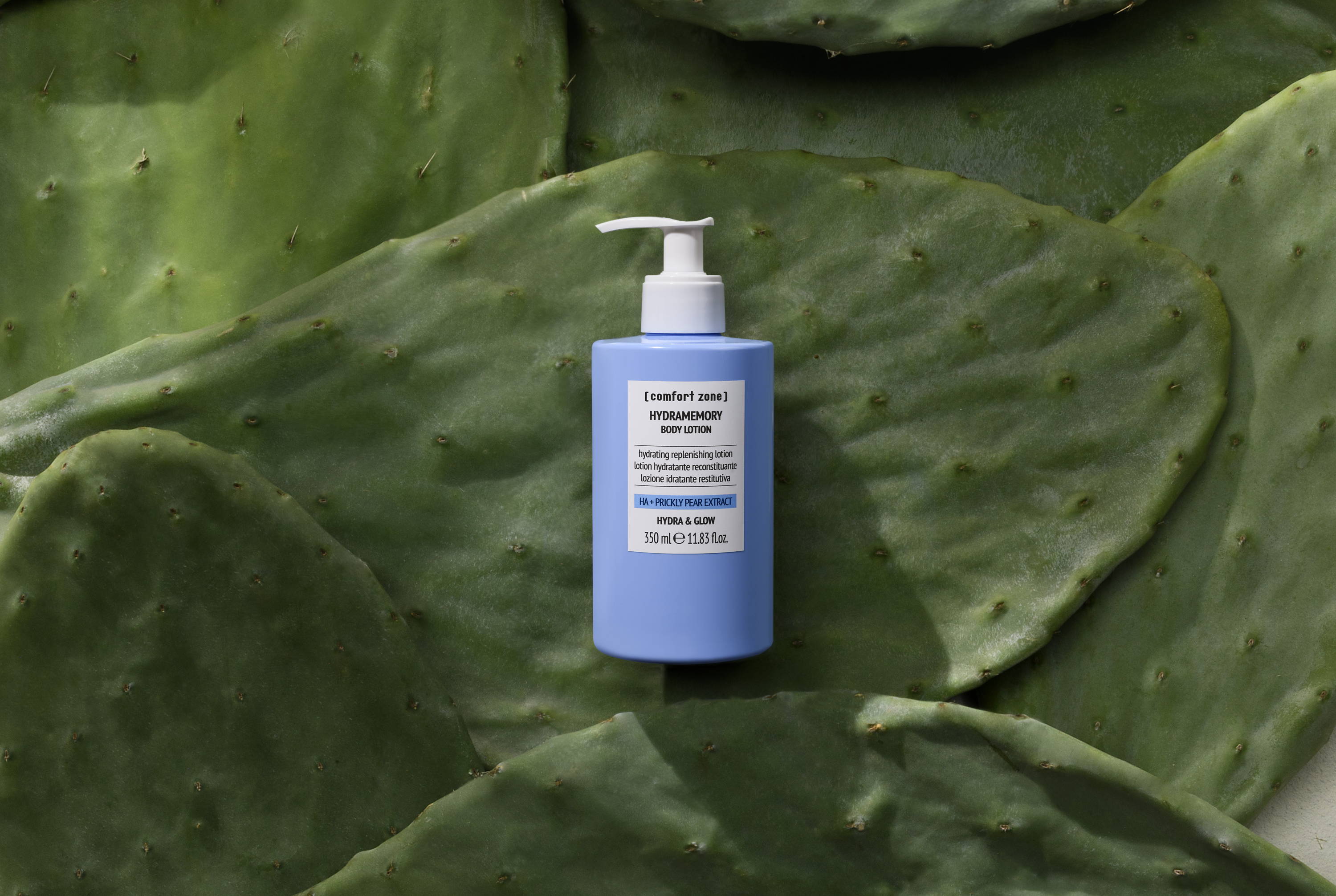Hello, there are currently no products in your shopping cart. Start your shopping.
Log in or register to get 4 free samples!If you don't want to register, don't worry— you can still choose 2 free samples with every order.

Updated on July 25, 2024 |10 min read
Taking a dip in the pool on a hot summer day feels great, but have you thought about what chlorine does to your skin? This article looks into how chlorinated water can impact your skin and gives you tips on keeping your skin healthy while you enjoy your time in the water.
IN THIS ARTICLE:
"It's important not only to rehydrate the face and body, but also to keep the skin barrier strong and resilient. Look for products that do both - restore and rebuild."
Elisabeth Nehme,
Board Certified Esthetician and [ comfort zone ] Master Educator
Is chlorine really harmful to your skin? While chlorine effectively disinfects water, its effects on your skin can vary. This widely-used chemical element contains hypochlorous acid, is a natural irritant, and eliminates bacteria, viruses, and other pathogens in water, ensuring swimming safety.
However, despite the safety of chlorinated pools, exposure to chlorine can still lead to adverse skin effects like dryness, irritation, and redness. Even with careful monitoring of chlorine levels, it's crucial to recognize potential risks and take necessary precautions to safeguard your skin.
Chlorine exposure is commonly associated with skin dryness. This is primarily due to its ability to strip away the skin's natural oils (sebum), leaving the skin feeling tight, rough, and dehydrated. However, the negative effects of chlorine on your skin go beyond dryness:

It might seem counterintuitive that spending time in water leads to drier skin, but there are scientific reasons behind this. While occasional swimming may not have noticeable effects, frequent swimmers are more prone to having their natural oils stripped away, leading to dryness and irritation.
Myth: Chlorine is the sole culprit. While chlorine is a known irritant, there are other factors that can contribute to dryness and irritation. These include pH levels, water temperature, and other present chemicals.
Myth: Only sensitive skin reacts. All skin types can experience dryness and irritation, especially with frequent and extended exposure.
Fact: Swimming can disrupt the skin’s natural barrier. The act of swimming itself, combined with chlorine exposure, can disrupt the skin’s barrier. This makes it more susceptible to redness, itching, and discomfort.
The feeling of dry and irritated skin after swimming is not always a temporary thing; it can have long-term implications. If you plan on doing a lot of swimming in chlorinated water, it may be time to adopt some pre- and post-swim skincare.
This is a simple step that can go a long way in preventing post-swim itchiness or redness. Before diving into the chlorine-treated waters of an outdoor pool, make sure to prep your skin with a moisturizer like Hydramemory Body Milk.
With hydrating properties that act as a protective barrier on the skin, it can help prevent water loss and maintain hydration levels. This not only reduces the drying effects of water but also minimizes the penetration of chemicals like chlorine.
After getting in a swimming pool, promptly shower with fresh water to rinse any lingering chlorine on your skin and hair. This helps reduce the risk of the chemicals drying or irritating your skin.
Following your shower, remember to apply a protective layer of moisturizer to your skin once more. This helps to lock in moisture as well as soothe and calm the skin to minimize any potential inflammation or redness caused by chlorine exposure.
Hydrating is not just about quenching your thirst. Drinking enough water helps support your skin's natural barrier against chlorine and other external factors. When your skin is hydrated, it is smoother, softer, and less likely to get irritated or red. Remember to keep your water bottle nearby—your skin will thank you with a radiant, healthy glow.
When dealing with dry skin post-swim, there are effective at-home remedies that can offer quick relief. Try a soothing oatmeal bath or apply coconut oil to replenish lost moisture. If your skin needs more intensive care, explore over-the-counter moisturizing creams or lotions that are formulated to soothe dryness and alleviate irritation.
Chlorine exposure can affect your skin’s health, leading to irritation, dryness, and redness. However, adopting pre and post-swim skin care can reduce the risk of long-term implications. Remember to moisturize before a swim and immediately shower after to rinse off the lingering chemicals.
Adopting a good moisturizing routine is important in any consistent skincare routine, especially if you plan on going swimming in a chlorinated pool. Try the [ comfort zone ] Hydramemory Collectionfor extra hydration and healthy skin. Enjoy your swim without worrying about dry skin.

By Elizabeth Pratt | Updated on July 25, 2024
Learn how to treat and properly heal a damaged moisture barrier.